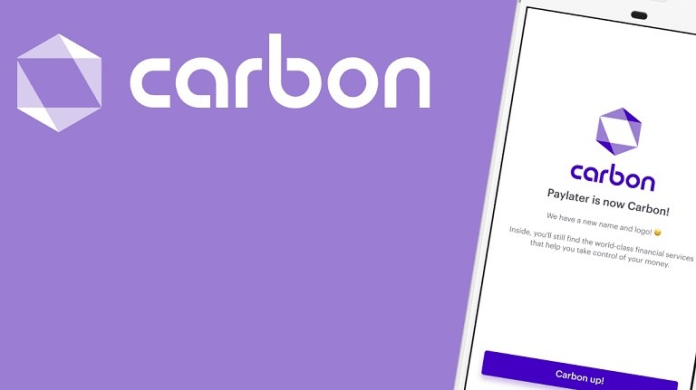Tech startup Carbon espouses transparency
This one is refreshing: Carbon, a Nigerian financial technology startup company, has chosen to publish its audited financials in the open for everyone to see! In Africa, this is not commonplace. On the other hand, if you are an observing person, you would have noticed that many startup companies in the West (Western Europe, US, […]

This one is refreshing: Carbon, a Nigerian financial technology startup company, has chosen to publish its audited financials in the open for everyone to see! In Africa, this is not commonplace. On the other hand, if you are an observing person, you would have noticed that many startup companies in the West (Western Europe, US, and Canada) are quite open with respect to their financials. Yes, they publish their financials in public media where anyone can see them; whether or not they are doing well or losing money. This way, people know where the business is headed at any point in time.
However, this kind of openness is rare in startup companies found in developing countries such as Brazil, China, India, Kenya, Nigeria, to name a few. Moreover, the few startups that do, always want to portray their companies as doing very well, even when they are not. They will show the good part of the business while downplaying the negative aspects, or even falsifying the part that is not doing well. Of course, there are exceptions, but opaqueness is the rule rather than the exception. In fact, transparency in its many facets is a huge problem in many cultures in Africa, Asia, Middle East, and so on. As techcrunch.com notices, “There’s been sparse official or audited financial information to review from African startups-with the exception of e-commerce unicorn Jumia, whose numbers were previewed when lead investor Rocket Internet went public and in Jumia’s recent S-1, IPO filing.”
Lexi Novitske, a Lagos, Nigerian-based venture capital investor at Acuity Venture Partners, reportedly concours: “Typically, in the local market, we have not seen a lot of voluntary transparency or the availability of data.” She gives a few rationales for this: “Most startups are concerned such disclosure could expose losses, give market intel to competitors or attract unwanted attention from regulators. It could also lead to negative negotiation leverage if partners saw that they were making good returns.” According to Novitske, Carbon’s move “builds trust from clients, partners or investors in a market where there is not a lot of openness.”
So why is Carbon “risking” putting its account out in the open even though the company is just a startup that has not yet initiated the process of going public? Let’s have some background on this company in order to appreciate the missions towards its vision. However, to be sure, Carbon isn’t the first, but one of the few. According to techcrunch.com, “One of the first glimpses into startup financials in Nigeria came when Jumia shareholder Rocket Internet went public in 2014, which required it to include limited Jumia data in its annual report. The accompanying prospectus to Jumia’s listing this year on the New York Stock Exchange offered the most expansive financial data to date on a tech venture operating in Africa.”
Carbon started out in 2012 in Lagos, with the name “OneFi,” with the mission of providing loans to salary earners in Nigeria, using a paper-based application process that requires supporting documents. (The company switched to digital (online) processing in 2016.) The co-founders are Chijioke Dozie and Ngozi Dozie. As a lending company, the product was called Paylater. OneFi obtained a “BB Stable” rating from Global Credit Rating (GCR) Co. and showed positive operating income before taxes of $5.1 million in 2017, according to GCR’s report. In the first quarter of this year, OneFi acquired the Nigerian payment solution company Amplify, with over 1000 merchants to which Amplify provides payment processing services. (Amplify itself was founded in 2016 by Segun Adeyemi and Maxwell Obi.) With this acquisition, the OneFi’s model changed from operating as a digital lender per se to becoming a more broadly-based online platform for consumer finance.
Then came the name change to “Carbon” in April 2019. The company gives the rationale as follows: “As the suite of financial services offered in the app expanded from just loans and into payments, investments and personal finance management, the name ‘Paylater’ became a little limiting!” The rational for the choice of Carbon as the name is a bit strange: “Carbon is one of the most essential elements for human life, it is found in all life forms and is extremely versatile. So to us, Carbon represents our aspiration to go everywhere with our customers, become an essential part of their lives and be versatile enough to change or innovate to fulfill their needs. We know what our customers’ pain points and needs are when it comes to banking in Africa and we are building financial products around them”.
The company’s stated “mission” is kind of inspiring: “We believe access to credit and quality financial services is a human right. Our mission is to empower all people with the financial access they need to pursue a life of dignity and prosperity.” Yes, indeed; I fully agree with Carbon that everyone should be able to pursue a life of dignity and prosperity.
The motivations for transparency? One is to help with recruiting top talents, according to Chijioke. “The other reason to volunteer financial data is to reassure investors (current and potential), shake off stereotypes for Nigeria and better position Carbon globally,” he added. It’s my hope that transparency become the model for future tech startups everywhere.
